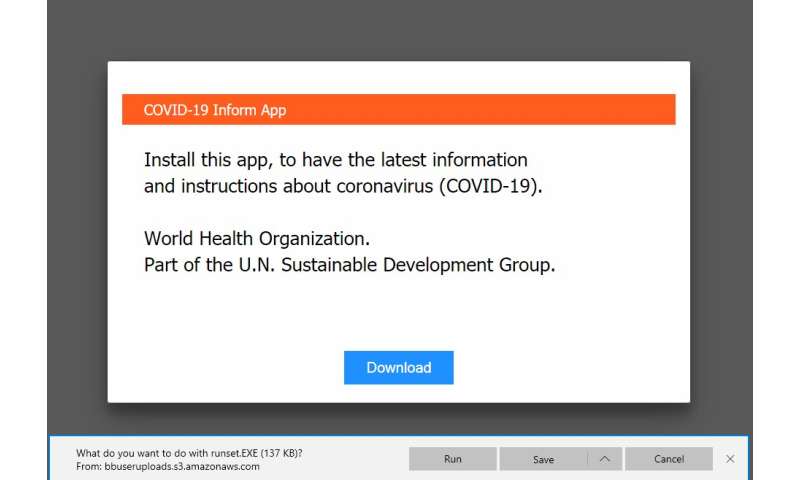
Business Wire 29 March 2020

Available to Hospitals, States and Government Agencies
The Companies are also Donating 100,000 Face Masks and 50,000 Face Shields in California
ICU Eyewear (ICU), in partnership with Contour Optik, has pivoted its production resources to meet our country’s urgent need for Personal Protective Equipment (PPE) and COVID-19 test kits. Nationwide demand for PPE has far exceeded supply, putting healthcare workers and other essential service providers at risk. ICU has significant capacity, resources and relationships in the medical supply industry, and protection for healthcare providers is ICU’s top priority. Bottom Line: ICU has the ability to supply bulk quantities of PPE now.
This press release features multimedia. View the full release here: https://www.businesswire.com/news/home/20200329005025/en/
"We are working with our partner companies in China to assist them in going through the FDA regulatory process.
This ensures that our products meet U.S standards so they can be imported and placed into the hands of the providers who need them," says ICU CEO Kirk Hobbs.
ICU is able to produce and ship the following in mass quantities:
- N95 face masks
- KN95 (Emergency Use Authorization from the FDA for the KN95 is underway)
- ASTM Levels 1, 2, and 3 face masks
- Goggles, face shields, gloves and other protective equipment
For example, ICU can manufacture KN95’s at a rate of 1 million per day, and ASTM Levels 1 and 2 face masks at a rate of over 5 million per day.

ICU is also North America’s exclusive agent for Mole Bioscience. Together we are working to get COVID-19 test kits to market as quickly as possible. The FDA’s requisite EUA process is underway and once that approval is granted, tests will be available immediately.
"ICU and Contour are pleased to be donating a total of 100,000 masks and 50,000 face shields to medical organizations in underserved communities throughout the state of California in this time of great need," added David Chao, Contour Optik chief executive officer.
About ICU/Contour Optik Partnership
ICU Eyewear is a California-based company that has been in business for 20+ years. We are an FDA-certified supplier of eyewear focused on the retail channel with customers including Target, Whole Foods and Office Depot.
Given the need for PPE (Personal Protective Equipment) due to the Covid-19 epidemic, we have focused significant resources on the production, importation and distribution of PPE and Covid-19 test kits. We are able to support the emergency demand for these materials in the United States because Contour has specialized knowledge and experience in the production of PPE. It was drafted by the Chinese government to produce surgical goggles and face shields during the peak of their own COVID-19 crisis. As a member of the consortium of companies called upon to produce PPE for the Chinese outbreak, Contour developed connections and relationships throughout the Chinese PPE supply-chain. Contour and ICU have developed supply relationships with key manufacturers for all of the PPE items, and are currently taking purchase orders and delivering.
Contact information:
Sales and bulk orders:
KelleyJonesICU@gmail.com or
ErikaMueckeICU@gmail.com
For product specific information visit www.icueyewear.com/ppe.
View source version on businesswire.com: https://www.businesswire.com/news/home/20200329005025/en/
ICU is able to produce and ship the following in mass quantities:
- N95 face masks
- KN95 (Emergency Use Authorization from the FDA for the KN95 is underway)
- ASTM Levels 1, 2, and 3 face masks
- Goggles, face shields, gloves and other protective equipment
For example, ICU can manufacture KN95’s at a rate of 1 million per day, and ASTM Levels 1 and 2 face masks at a rate of over 5 million per day.

ICU is also North America’s exclusive agent for Mole Bioscience. Together we are working to get COVID-19 test kits to market as quickly as possible. The FDA’s requisite EUA process is underway and once that approval is granted, tests will be available immediately.
"ICU and Contour are pleased to be donating a total of 100,000 masks and 50,000 face shields to medical organizations in underserved communities throughout the state of California in this time of great need," added David Chao, Contour Optik chief executive officer.
About ICU/Contour Optik Partnership
ICU Eyewear is a California-based company that has been in business for 20+ years. We are an FDA-certified supplier of eyewear focused on the retail channel with customers including Target, Whole Foods and Office Depot.
Given the need for PPE (Personal Protective Equipment) due to the Covid-19 epidemic, we have focused significant resources on the production, importation and distribution of PPE and Covid-19 test kits. We are able to support the emergency demand for these materials in the United States because Contour has specialized knowledge and experience in the production of PPE. It was drafted by the Chinese government to produce surgical goggles and face shields during the peak of their own COVID-19 crisis. As a member of the consortium of companies called upon to produce PPE for the Chinese outbreak, Contour developed connections and relationships throughout the Chinese PPE supply-chain. Contour and ICU have developed supply relationships with key manufacturers for all of the PPE items, and are currently taking purchase orders and delivering.
Contact information:
Sales and bulk orders:
KelleyJonesICU@gmail.com or
ErikaMueckeICU@gmail.com
For product specific information visit www.icueyewear.com/ppe.
View source version on businesswire.com: https://www.businesswire.com/news/home/20200329005025/en/














